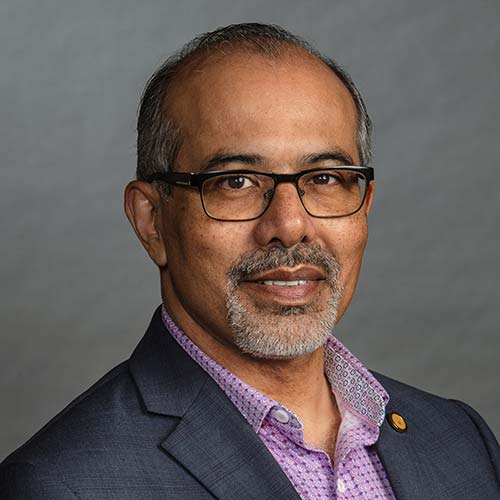Who We Are
WFMH Board Candidates for Election
2025-2027

K. Sonu Gaind
Country: Canada
Region: North America & Eng. Caribbean
Nominator: Self
Candidate 1000 word statement
I am pleased to have the chance to be considered for a Board of Director position with the World Federation for Mental Health (WFMH). I share the values and goals of the WFMH to increase public awareness and improve attitudes about mental disorders and promote mental health, and improve the care, treatment and recovery of those with mental disorders, and would welcome the opportunity to work with the WFMH and colleagues in forwarding this important mission.
Throughout my career as a psychiatrist, academic leader, and advocate, I have witnessed firsthand both the devastating impact of mental health stigma and discrimination, and the transformative power of evidence-based advocacy to create meaningful change. The WFMH mission to advance mental health awareness, prevent mental disorders, and promote best practice recovery-focused interventions worldwide resonates deeply with my own journey—one that has taken me from treating individual patients to influencing international policy, always with the conviction that mental health must be recognized as fundamental to human dignity and societal wellbeing.
As I’m sure is true for any psychiatrist, in my clinical work I have seen patients whose suffering was compounded not just by their illness, but by systemic barriers that denied them equitable care. It quickly became clear that healing requires more than clinical expertise—it demands addressing the structural inequities, stigma and discrimination that prevent vulnerable populations from accessing care. This early experience, and what I learned from patients struggling with these inequities, shaped my understanding that effective mental health advocacy must address both individual treatment needs and the broader social determinants that influence mental wellness across diverse communities.
As Professor and Governor at the University of Toronto and Chief of Psychiatry at Sunnybrook Health Sciences Centre, and previously Chief of Psychiatry at Humber River Hospital, I have consistently worked to bridge the gap between academic excellence and real-world impact. My scholarly work has focused on developing innovative care delivery models, including the Clinical Care Modifier system we successfully introduced in the publically funded health system in Ontario. This evidence-based advocacy brought hundreds of millions of dollars in increased funding to mental health services across Ontario, and increased access across the province of services provided to those most in need suffering from serious mental illnesses. These efforts demonstrated that rigorous evidence combined with strategic advocacy can have real world impact, and create sustainable changes that improve access for our most vulnerable populations.
My international perspective has been shaped through extensive engagement with mental health colleagues worldwide, including as a past Board Member of the World Psychiatric Association. While mental health needs vary across cultures and different parts of the world, the fundamental human need for compassionate, evidence-based care is universal. Through my presentations at international conferences across five continents and my contributions to global policy discussions, I have consistently advocated for approaches that respect cultural differences while maintaining rigorous standards for care quality and ethical practice.
The intersection of mental health advocacy and social justice has been a defining theme throughout my career. My work challenging institutional stigma—which can sometimes include "discriminatory policies masquerading as healthcare efficiency"—has focussed on how traditional healthcare models often perpetuate inequities that disproportionately affect the most marginalized with mental illness. Whether testifying before parliamentary committees on medical assistance in dying policies or developing anti-stigma campaigns that reached diverse communities, I have learned that effective advocacy requires not just clinical expertise, but the courage to challenge systems that fail our most vulnerable populations.
As past President of the Canadian Psychiatric Association and Ontario Psychiatric Association, and current President of the American Psychiatric Association Ontario District Branch, I have navigated complex political environments to advance mental health priorities at national and international levels. These roles have taught me that meaningful change requires building coalitions across professional, cultural, and political divides—skills that I believe would be helpful as a WFMH Board Member working with diverse partners. Financial stewardship and strategic planning have been integral to my leadership approach. Working with various teams, I have successfully secured nearly $19 million in funding for innovative mental health programs, including specialized services and research initiatives. More importantly, I have consistently ensured that efforts include meaningful input and sustainable support for patient and family advisory councils, recognizing that those with lived experience must have meaningful voices in shaping the services designed to help them. This commitment to inclusive governance aligns with WFMH's recognition that effective mental health advocacy must include the perspectives of those most directly affected.
As someone who has dedicated my career to advancing mental health through multiple channels—clinical care, academic research, policy advocacy, and organizational leadership—I am deeply committed to WFMH's vision of a world where mental health is valued, promoted, and protected. The challenges facing global mental health are complex and multifaceted, and I believe my experience navigating complex healthcare systems, building international partnerships, and translating evidence into policy positions would allow me to contribute meaningfully as a WFMH Board Director. I recognize this would involve both in-person and virtual meetings and communications, and I have effectively balanced working via such flexible arrangements in my national and international work.
I believe those who have worked with me would attest to my integrity, commitment, principled and strategic vision, and communication and interpersonal skills that ensure respectful engagement while also bringing clarity of purpose. I would be honoured to have the chance to work with colleagues and serve on the WFMH Board of Directors to advance our shared mission of promoting mental health awareness, preventing mental disorders, and improving care for all people, everywhere.
Candidate additional statement if provided